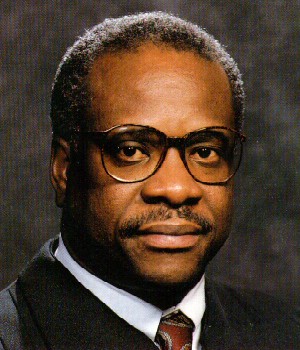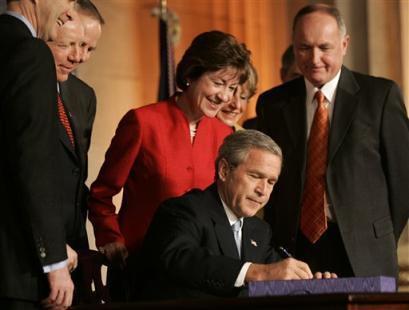Oberlin Blogs
Tom Allen for US Senate in 2008
July 11, 2008
Will Mason ’10
Summer political internships are something of a cliché, and until this summer I'd opted to avoid them entirely. The fact of the matter is that most high-profile campaigns don't have much work of interest for interns to do, and most low-profile campaigns lack the sex appeal to make 40 hours a week of unpaid labor sound worthwhile. Every spring, hyper-educated and overly ambitious college students meet the news of their internship with unabashed glee only to find out too late that they've signed up for a summer of photocopying, coffee-fetching, and data entry. Go figure: a campaign with $8 million in the bank and international political connections didn't want to have a sophomore poli-sci major feed them ideas for advertisements and press releases after all.
To be fair, the above is, as with most of my pronouncements, a simplistic and overly cynical analysis. But the specter of a summer spent collating policy reports has loomed large enough in my mind that I spent the past four years working outdoors at a wonderful summer camp in northern Maine. And yet here I am, four weeks into a political internship for an exciting, high-profile senate race in my home state of Maine, and I am neither miserable nor relegated to hours of grunt work.
The reason for this is the Cole Scholars program, which is unique to Oberlin. There's a great article about the annual program in a pamphlet from this past spring called "Advancing Oberlin" (it also contains an article about the upcoming jazz building; a twofer!), but unfortunately I cannot find an internet version. I'll excerpt part of the article below, as it will likely be a much more interesting description of the origins of the program than what I would offer.
"It was the fall of 1991, and Oberlin alumni Richard and Dorothy Cole, both '56, were not happy. US President George Bush had nominated Clarence Thomas to fill the Supreme Court vacancy created by the retirement of the court's first African-American member, civil rights pioneer Thurgood Marshall.... As the hearings unfolded, Dick and Dodi Cole decided it was time to do something about the quality of elected officials in this country.
"What they did was create, through their philanthropy, the Oberlin Initiative in Electoral Politics, an ambitious program with an ambitious goal: to encourage Oberlin graduates to run for and serve in public office."

Thanks, Clarence!
Oberlin students apply in the fall for the program, which consists of a training seminar in the spring, an 8-week summer internship, and a research project in the fall. This year's class had 13 students, a larger-than-usual number owing to the exciting political atmosphere this year. The spring seminar covered a variety of topics related to campaigning, from the intricate science of fundraising to the art of a well-organized field campaign to the insufferable Divine Comedy of working with the torpid local press. This latter campaign branch, colloquially known as "communications" although I like my name better, is what I wanted to work on this summer. I have a long-standing interest in the media, manifested by years of work for print publications as well as this blog, so the prospect of being able to observe the fast-paced inner workings of a political campaign was especially appealing.
The Cole program has several perks that make it extraordinary. First, it is very easy for Cole scholars to get placed on summer internships. It would have been a monumental effort for me to get my resume to the communications department of the Allen campaign, but the program has sufficient clout and connections that getting a foot in the door poses little problem. Secondly, the spring seminar is eminently useful and a lot of fun; it's a handful of politics nerds sitting at a table talking about stuff they'd talk about on their own time. This semester it was taught by Professor Michael Parkin, though it's my understanding that different professors teach it from year to year. We also worked with Professor Ron Kahn and Professor Eve Sandberg, and interacted with past Cole scholars to ask questions about the nature of the internships.
Of course, one of the biggest perks of the program is that it pays for your food, transport, and housing, as well as providing a generous stipend. Working an unpaid internship becomes a lot more palatable when you do in fact receive payment.
I have a volatile personal relationship with American politics. At times I am full of idealism and moved to passion by many of our elected officials, and I have a strong respect for our traditions as a country and for the moderation that forms the foundation of our government, even if my personal beliefs are somewhat socialist in nature. However, the degree to which I disdain the partisan media circus cannot be sufficiently described. Television and radio pundits make me nauseous, and the advent of the blogosphere has allowed an impossibly large number of dentheads self-anointed with fictional authority to broadcast their bile all over the internet. I loathe the far-right as much as I do the far-left; Keith Olbermann and Chris Matthews are capable of the same deceit and abuse of their power as TV personalities as Sean Hannity and Tucker Carlson. Tripe is tripe no matter who peddles it.
This makes working on a political campaign very hard, as they are won and lost based on which side casts the most effective narrative - each side has a spin on the facts, and whichever spin worms its way into the unsuspecting minds of voters carries the day. But sometimes the ends justify the means, and I have more or less made up my mind that the race I'm currently working on is too important to write off for theoretical or ideological reasons.

Tom Allen at a press conference in northern Maine that I attended yesterday.
I'm working for Tom Allen, a Democrat and the current house representative from my district in Maine. He's challenging two-term incumbent Republican senator Susan Collins in a year when it's good to be a Democratic challenger. I've always liked Rep. Allen, and his Senate candidacy was the big reason why I applied for the Cole program in the first place. Additionally, Susan Collins represents what I view to be exactly the kind of Republican we need to remove from office. She's a self-proclaimed moderate, but she has voted for every single piece of significant legislation proffered by the Bush Administration, from the war in Iraq to the so-called Cheney Energy Bill of 2005 to the Bush tax cuts. Additionally, she was chairperson of the Homeland Security and Government Affairs Committee from 2003-2006. During this time, billions of taxpayer dollars were wasted or stolen by private contractors like Halliburton and KBR; Collins was in a position to hold hearings about contractor fraud and abuse, but, despite numerous pleas from her colleagues in the Senate, refused to hold hearings on the issue at the behest of the Bush administration. (Eventually she held one hearing.) The video below is a recent web advertisement by the Democratic Senatorial Campaign Committee designed to help dissuade Mainers from the myth of Collins' moderation.
Unfortunately, most Mainers don't know much about Collins' record. She has effectively cast herself as a moderate senator, helped in large part by the fact that she has attached herself to her colleague, Olympia Snowe, who is legitimately moderate. (Snowe is also the most popular senator in the United States, with approval ratings hovering around 70%.) Allen has a liberal voting record, having voted against the war, against the Bush tax cuts, and in favor of environmentally progressive policies, but he's also not so partisan as to vote against the interests of his constituency. Mainers like Allen, but they also like Collins, and they won't be inclined to vote against the status quo unless the Allen campaign can make a very convincing argument for regime change.

Senator Collins with George W. Bush
Spearheading that operation is the communications campaign, and it's been very interesting to be a part of that effort. Maine is a big state with a small population, which makes it simultaneously easy and challenging for Allen to reach out to voters. As of right now, Allen is polling 7% behind Collins - 49% to 42% according to Rasmussen's June numbers - but this is an improvement from the 16% gap that existed in the same poll two months ago. Collins' lead will continue to erode, but this was more or less to be expected as the election nears. The goal is to win, not to come close to winning. Nevertheless, even the most conservative political commentators see Collins as vulnerable, and DSCC Chairman Chuck Schumer has listed Maine as one of the top 8 priorities for Democratic pick-ups in the fall.
I could talk at some length about the election, as it's a really fascinating and very weird campaign, but I've been going on for too long as it is. I'll likely post again about the topic, but suffice it to say that I am enjoying the opportunity to be immersed in such an important campaign. I am doing meaningful work and learning a lot that will be of use in the years to come, regardless of whether I choose to pursue politics professionally. And I wouldn't be able to say that if I hadn't gone to Oberlin.
Similar Blog Entries

Ballad of the Witches' (Academic) Road
April 25, 2025
Games, music history, and queer theory — oh my!

Managing an Oberlin Workload
April 25, 2025
All you need to know about the transition from high school to college course work.
